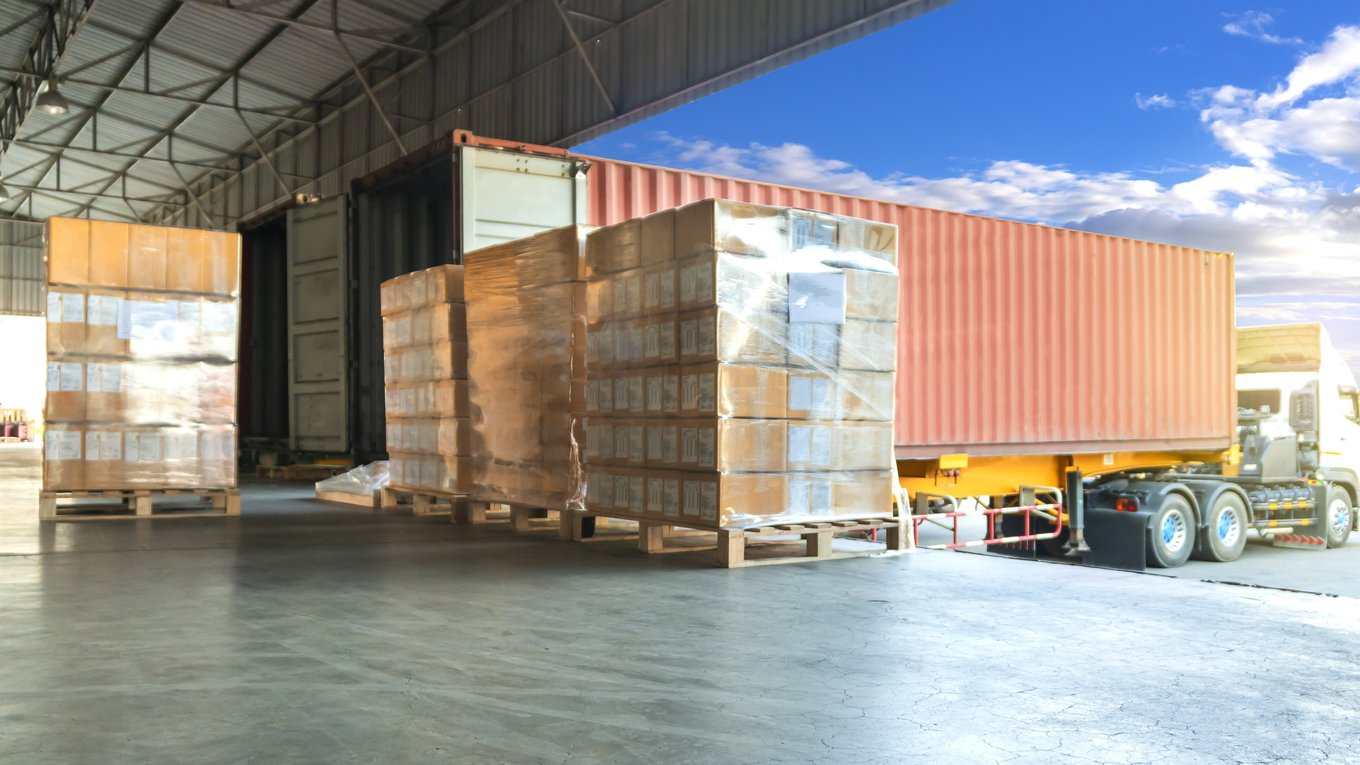What Are 3PL Warehouses And How Do They Make Money?

3PLs probably date back hundreds, if not thousands, of years. The Council of Supply Chain Management Professionals traces the actual 3PL abbreviation to many decades ago. "The term 3PL was first used in the early 1970s to identify intermodal marketing companies … in transportation contracts," the council wrote in a glossary. "Up to that point, contracts for transportation had featured only two parties, the shipper and the carrier." Today, excess inventory buyers and wholesale liquidators specializing in buying closeouts use 3PL warehouses for storage. Closeout websites often use fulfillment centers to ship orders to their consumers so they don't have to deal with excess inventory generated from amazon FBA returns and other parts of the supply chain that result in selling closeouts and getting rid of returned or overstock merchandise.
The Motor Carrier Act of 1980 deregulated the trucking industry, which reduced trucking rates and also increased the amount of competition, all of which fed into 3PL concepts. Wholesale liquidators work with businesses that need to get rid of too much inventory and sell closeouts. What these excess inventory buyers do is purchase dead stock, closeout merchandise and other obsolete inventory and sell it closeout wholesalers or other businesses that operate closeout websites. The term 3PL gained popularity among consultants and during conferences in the 1990s, likely tied to evolving technology, including the rise of the internet. Many closeout buyers and other product liquidation companies are using 3PL warehouses. As so business owners turn to 3PLs as a better option, others are shutting down 3PL warehouses. This creates more closeout opportunities for inventory buyers.
In more recent years the Consumer Product Safety Improvement Act of 2008 legally defined 3PL: "The term third-party logistics provider means a person who solely receives, holds or otherwise transports a consumer product in the ordinary course of business but who does not take title to the product." For example, if excess inventory buyers purchase a large lot toasters from a company getting rid of housewares closeouts, they may send them to a 3PL warehouse for temporary storage. Then another overstock inventory buyer purchases the inventory from the first buyer. The 3PL will then send the entire shipment to the new buyer. The original closeout liquidator never took possession of the goods. According to a frequently cited 2017 report from Armstrong & Associates, a supply chain consultancy, 90% of domestic Fortune 500 companies rely on 3PL providers to handle logistics, compared to the 46% Armstrong reported in 2001.
3PL is a service that allows you to outsource operational logistics from warehousing, all the way through to delivery, and ultimately enables you to focus on other parts of your business. Excess inventory buyers have to spend most of their time talking with companies who are liquidating their inventory. There is a process when you want to sell closeouts to wholesale liquidators, and these businesses can do a much better job if they can concentrate on this process, rather than warehousing problems. Third-party logistics companies provide any number of services having to do with the logistics of the supply chain. This includes closeouts transportation, warehousing, picking and packing, inventory forecasting,order fulfillment packaging and
freight forwarding. Wondering if your business needs to use a 3PL provider? Using a 3PL provider offers lots of advantages. The biggest is that by handing over these logistics, you can focus on other aspects of your business such as sales, marketing and product development. Closeout websites and focus on buying and selling overstock rather than packing and shipping. Amazon sellers can figure out how to get rid of FBA inventory without having to do all the packing and shipping. Outsourcing 3PL leaves you with more time and resources. Here are a few other advantages:
3PLs have more leverage with freight companies than individual shippers do. Working with carriers on behalf of multiple customers, 3PLs can negotiate pricing based on volume and order frequency. Closeout companies are often selling low priced products to product liquidation companies and surplus liquidators making low freight priorities difficult. Using a 3PL to manage all or part of your supply chain also gives you the freedom to invest in other key areas to grow and develop your business. Most businesses experience fluctuations in demand throughout the year. Using a 3PL allows you to manage peaks and troughs more effectively without having to commit to capital when you don’t need to. If a large overstock inventory comes available you can simply request more warehouse space. Likewise, if you have too much merchandise and need to make room in your warehouse, you can get rid of excess inventory and reduce overhead. When buying liquidated inventory there is a need for flexibility.
Customers expect next-day or same-day shipping as standard. Using a third-party logistics provider allows you to offer fast shipping no matter where the order is being sent, thanks to having access to the 3PL’s wide distribution network. Even closeout websites and deal sites have been forced to offer free and immediate delivery. With an international 3PL, you have the flexibility to test the waters in new markets without having to commitment to any major investments like your own warehousing space or staff. Excess merchandise can be removed from a key warehouse facility and shipped to a 3PL to keep it out of the way and not interfere with daily operations. The downside to this of course, is incurring additional costs to store old merchandise. Generally, this would only be a good option for a very large surplus inventory that must be moved because it could not be liquidated.
Shipping delays can and do happen for a number of reasons. When unforeseen circumstances pop up, a 3PL is responsible for making alternate arrangements to fulfill your orders as quickly as possible. Surplus wholesale suppliers depend on smooth shipments to their customers who are often liquidation buyers and closeout liquidators. You’ll also be protected in the event of damage or loss of goods. if you’re just starting out, who better to take care of your logistics than a company that specializes in them? Fulfillment, warehousing and shipping come with major challenges of their own, so handing it off to the experts can really make a difference in the way you function - and it leaves you to focus on increasing your overall value to your customers by providing them with low prices on surplus merchandise and liquidation goods.
Merchandise USA is a product liquidation company for overstock housewares, toys and sporting goods including other closeouts as well. We buy and sell surplus inventory, we buy in bulk and also liquidate wholesale inventory and 3PL warehouses.



